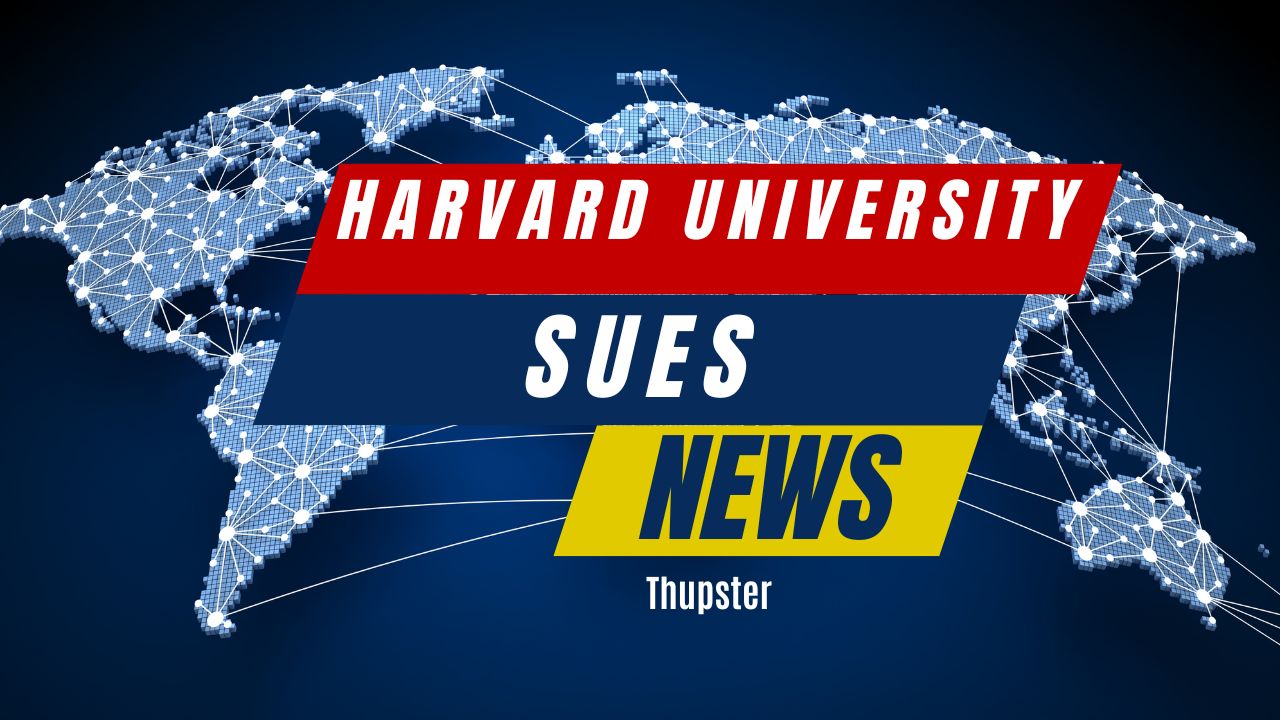Harvard University Sues Trump Administration After Federal Funding Termination: Unveiling the Battle Over Academic Freedom
The ongoing conflict between the Trump administration and Harvard University has reached a new level with the termination of $450 million in federal funding. This move comes after Harvard rejected claims that it violated federal law, marking another round in their contentious battle. The dispute began when Harvard’s president, Alan Garber, and its attorneys contested demands from the administration regarding teaching content and hiring practices. In response, the administration froze $2.2 billion in research funding, initiating a pattern of aggressive actions targeting the prestigious Ivy League institution.
The Trump administration has been vocal about its dissatisfaction with universities’ responses to campus protests over the Israel-Gaza conflict. It has threatened funding cuts to multiple high-profile schools, including Princeton, Brown, and Columbia University. However, Harvard stands as the primary focal point due to its resistance and standing as the oldest and wealthiest university in the country. In response to these threats, Harvard filed a lawsuit arguing that the funding freeze is unlawful and unconstitutional. This legal challenge was met with further retaliatory measures, including the announcement of Harvard’s ineligibility for new federal grants.
Amidst this political standoff, the administration initiated investigations into campus antisemitism at various universities. While some Jewish leaders have supported these efforts to address anti-semitic sentiments, others argue that the initiative is politically motivated and could infringe on academic freedoms. The situation has left many university leaders closely monitoring Harvard’s approach as it seeks to balance firm opposition to federal overreach with compliance demands while attempting to improve campus climates.
The recent confrontation between Harvard and the administration began with a letter from President Garber to Education Secretary Linda McMahon, where he acknowledged shared goals regarding ending antisemitism but criticized the government’s disregard for the university’s legal compliance. In response, the Joint Task Force to Combat Anti-Semitism announced the termination of $450 million in funding, citing complaints by Jewish students documented in Harvard’s own report on combating antisemitism.
Harvard responded with an amended complaint in its lawsuit, challenging various actions taken by federal officials and the funding cuts. The university argues that these measures undermine its efforts to combat antisemitism and bigotry on campus. Furthermore, the administration’s threat to revoke Harvard’s tax-exempt status and ability to enroll foreign students has created significant uncertainty for the institution.
The termination of funding has immediate impacts on Harvard’s research enterprise, with federal stop-work orders affecting ongoing projects. This financial squeeze threatens the university’s academic rigor and standing as a center of excellence. The broader implications of this dispute extend beyond Harvard, influencing how universities navigate federal demands while upholding their independence and commitment to academic freedom.
The current situation reflects a broader cultural and political shift concerning free speech, academic autonomy, and the role of government in higher education. It also raises questions about the balance between addressing legitimate concerns around antisemitism and safeguarding open discourse within university settings. As Harvard continues its legal challenge, it remains to be seen how this conflict will evolve and what implications it may have for future educational policy and practice.
The resolution of this dispute holds significant importance not only for Harvard but also for other institutions facing similar challenges. The outcome could shape the relationship between government agencies and universities in the United States. Moreover, it will influence ongoing debates about academic freedom, the role of funding in shaping educational content, and the need to address societal issues such as antisemitism within higher education environments.
In conclusion, the dispute between the Trump administration and Harvard University is emblematic of broader tensions in American society regarding government intervention in academia. As this conflict unfolds, it underscores the complex interplay of freedom of speech, public funding, and institutional autonomy in shaping educational policies and climates. The resolution of this legal battle could have far-reaching implications for higher education institutions across the country, setting a precedent for how universities navigate future challenges and maintain their commitment to academic integrity and independence.

Leave a Reply